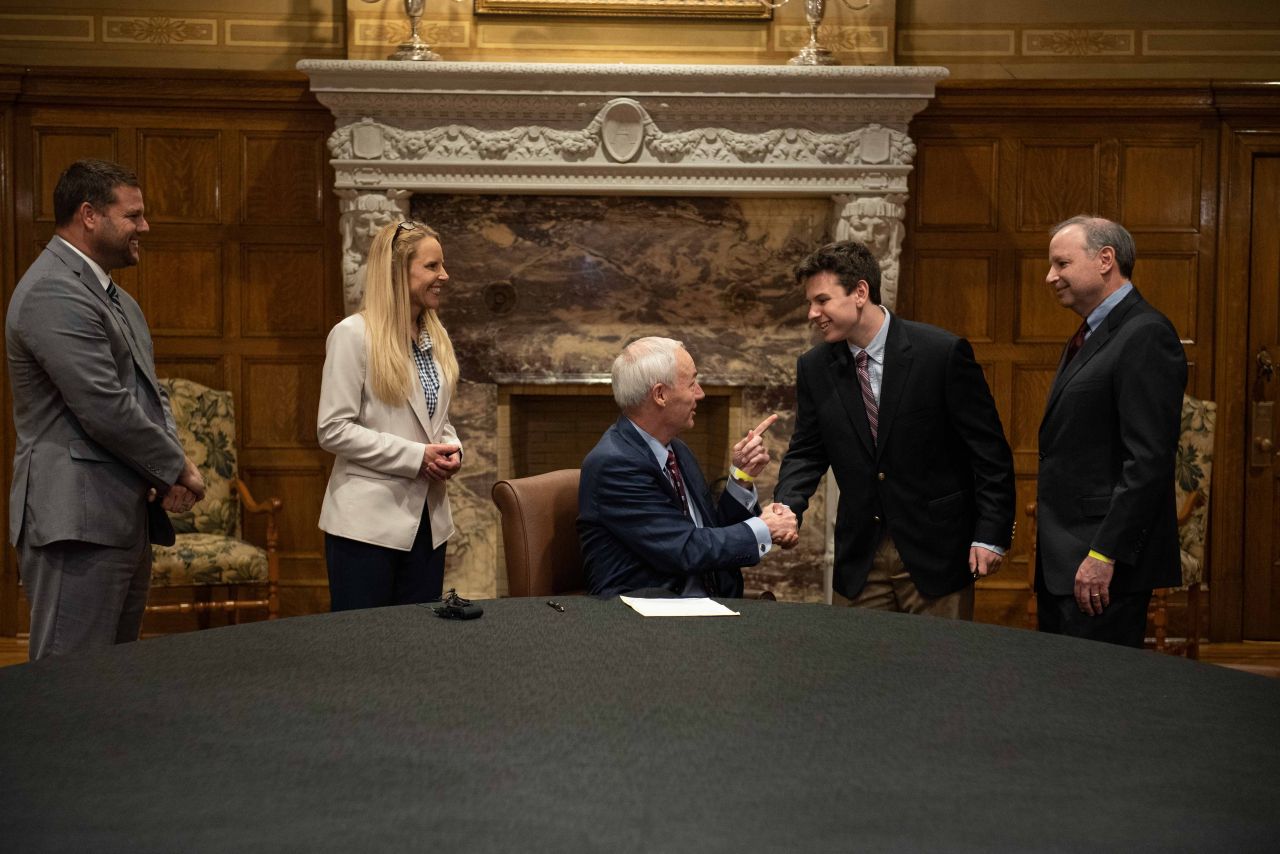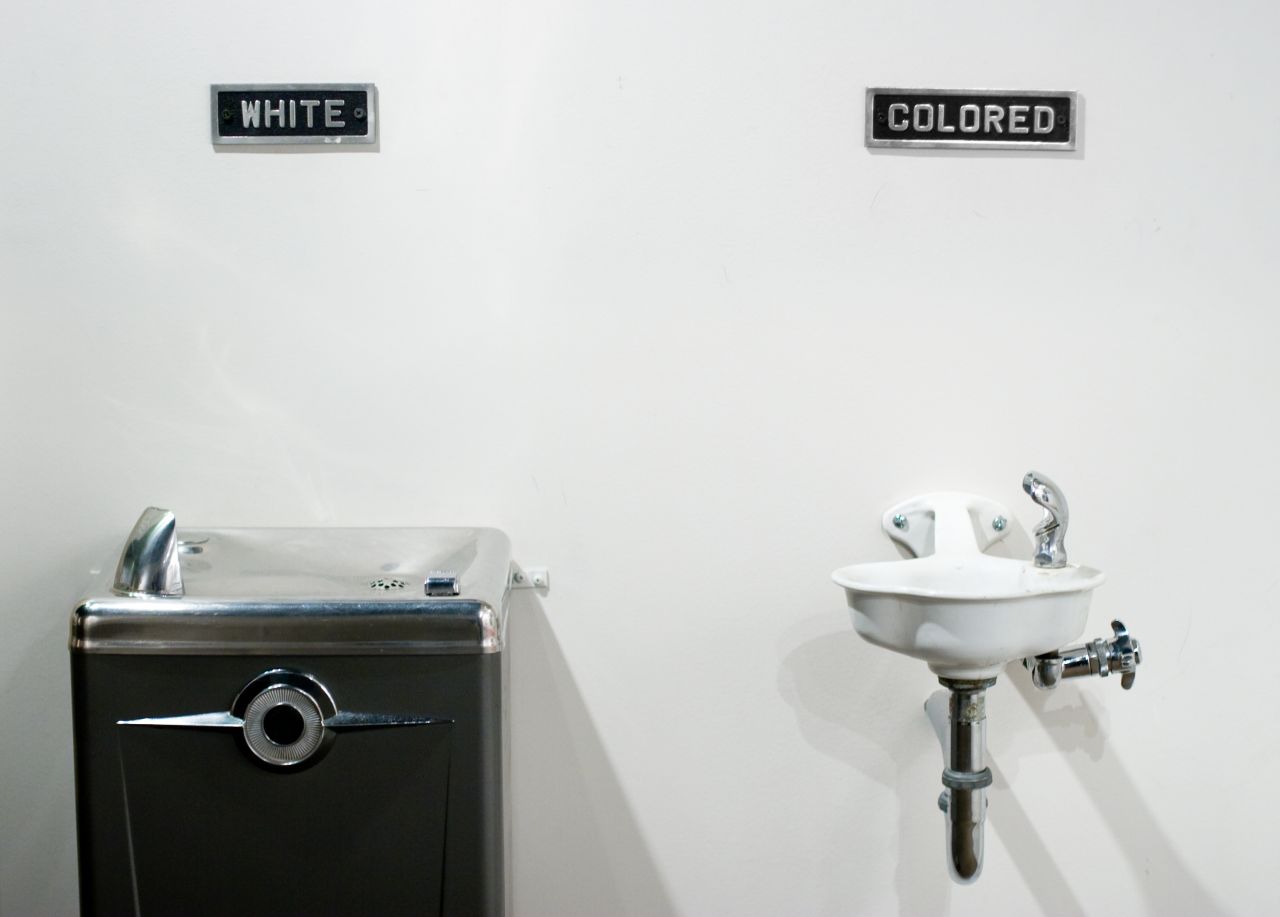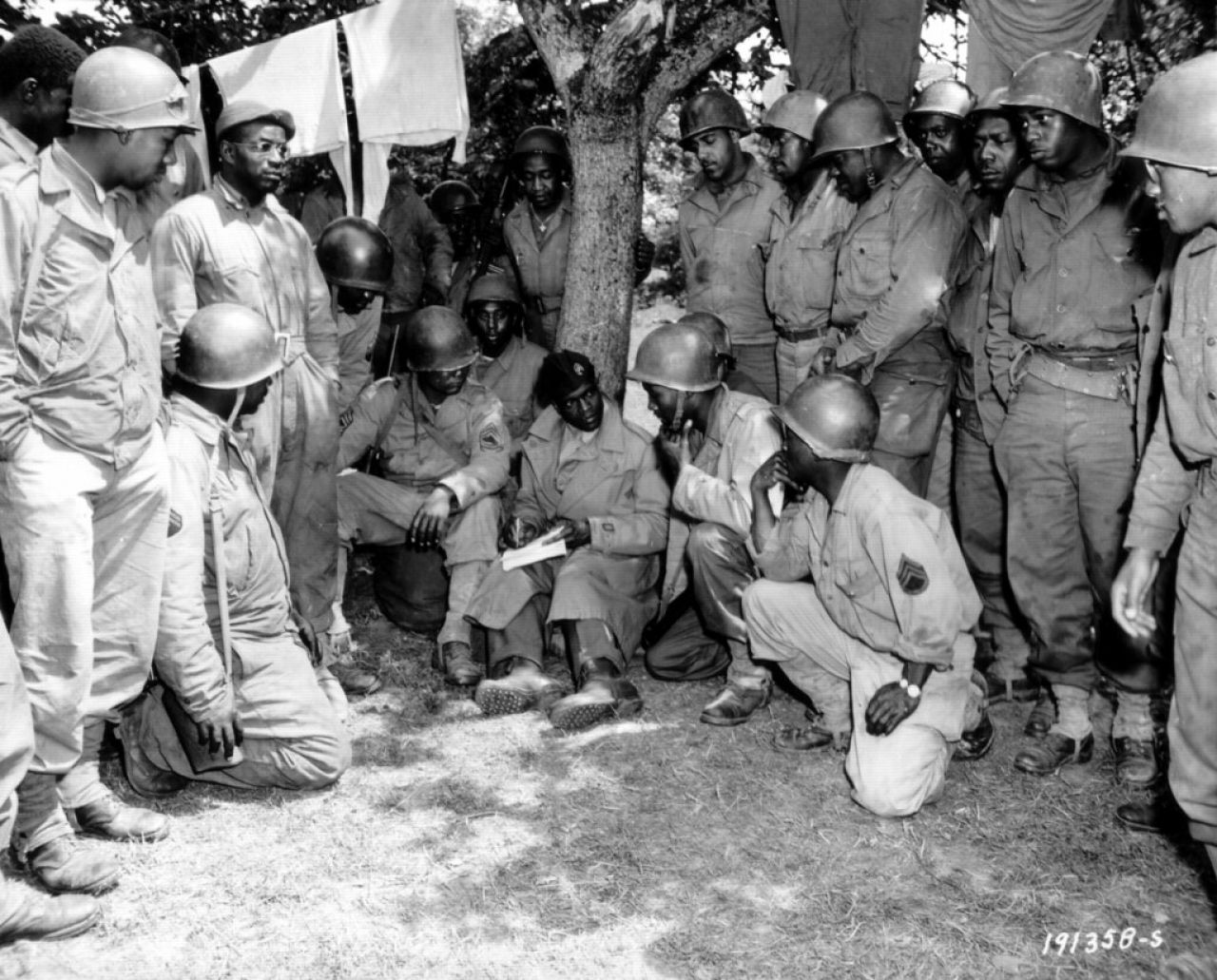“The U.S. and the Holocaust,” a film by Ken Burns, Lynn Novick and Sarah Botstein not only explores how the events of the Holocaust were handled at the national level but brings conversations to the local level.
“[The] film, at its very core, will help reconnect Arkansans with a piece of history that happened; that should have never happened and can never happen again,” Holocaust education activist Steve Ronnel said. “The only way it can never happen again is if we learn from it and we talk about it.”
That piece of history, of course, is the Holocaust, which led to the prosecution and murder of countless members of the Jewish population. But, over time, the teaching of the Holocaust and its global impact has not been prominent in Arkansas education.
SURVEY AND ACTION
“There was a 50-state survey conducted in 2020 where Millennials, aged 21 to 39, were asked some very basic questions about the Holocaust,” Ronnel said. “Can you name any concentration camps or ghettos? Have you heard of the Holocaust? These types of questions. Unfortunately, Arkansas finished dead last — 50 out of 50 states — in that survey.”
In response to the "U.S. Millennial Holocaust Knowledge and Awareness Survey" and the bullying his son, David, was enduring for being Jewish, Ronnel began the work that set the wheels in motion for Arkansas Senate Bill 160, which was passed unanimously by the Arkansas State Senate and House of Representatives in April 2021. The bill requires all public schools to incorporate the Holocaust into the curriculum, starting with the 2022-23 school year. 
“When we look at what’s lacking in a student’s education, we might find gaps here and there, but particularly to this history, as with many states, frankly, we don’t show well,” John Brown University Professor of Psychology and Psychology Department Chair Dr. Kevin Simpson said.
Bryant High School social studies teacher Rick Manes tells his students, “If we don’t learn it or study it in the way we can make an impact, history repeats itself and runs in cycles.”
MAKING HISTORY TANGIBLE
“I think for some, the initial question will be ‘The Holocaust didn’t happen here, why are we talking about it through the American experience?’” Simpson said.
“The U.S. and the Holocaust” — a three-part, six-episode documentary — explores America’s response to the tragedy that took millions of lives and displaced many more.
“There was a man and his wife [at the training] who were Holocaust survivors, so they survived two different camps and met in a refugee center, got married and moved to Tennessee,” Manes said. “I still get emotional when I think about the wife’s response when she came to America because the first thing she saw when she got off the bus in Tennessee was a sign for Jim Crow laws. She turned to her husband and said, ‘Look, they have a Hitler here, too.”
Jim Crow laws legalized segregation in the U.S. 
“We can talk about the fact that the United States and its treatment of African Americans, of Indigenous people and its overall race laws, segregation laws and Jim Crow laws become the model for the Nuremberg laws,” University of Arkansas associate professor of history and director of African and African American studies Dr. Caree A. Banton said. “In fact, [Hitler] sent prominent lawyers and scholars to study the Jim Crow system of excluding black people and native people, and one studied here at the University of Arkansas.
“It’s not a surprise that they came to the South. The Jim Crow South was the site of the ways in which America tried to keep its population separate: the segregation of public schools, the exclusions of public life and railroad railcars access. All of this was very fascinating for Hitler and his crew in Germany.”
Still, in America, during World War II, groups were ostracized through Japanese internment camps on U.S. soil, including Arkansas, following the bombing of Pearl Harbor. Furthermore, African American soldiers adopted the Double V campaign during WWII.
“African American soldiers had to fight against two fascist systems,” Banton said. “The Double V campaign was an actual campaign for African American soldiers for victory at home and abroad.”
Seen through the lens of historical evidence, the Holocaust hits closer to home than many may realize. 
“We can’t just see the Nazi phenomenon as an exotic evil," Simpson said. "We have to recognize that we can see ourselves if we look carefully. Psychology is often asking questions at the individual level, so how do we explain people in extreme situations but also in more normative? How do we look at these processes? How do we look at the political figures at the center of it? Activist groups who are trying to rally for more open-border policies.
“These issues are still with us. We’re recognizing this even in our own era. Attitudes about the stranger, the perceived other. That is another access point for my students, and I’m excited to see this documentary get in front of them so they can draw those parallels between the history and what we’re seeing in our political discourse.”
TUNE IN:
"The U.S. and the Holocaust"
The three-part documentary premieres at 7 p.m. Sept. 18 and continues each night at 7 Sept. 20-21.
If you've missed the airing of the show, you can watch on-demand here.
Educational Resources:
The broadcast of “The U.S. and the Holocaust” will be accompanied by educational materials for middle and high school classrooms in Ken Burns Classroom.
The materials in development are the results of a collaboration between PBS LearningMedia and the United States Holocaust Memorial Museum (USHMM), with the support and input of other leading Holocaust education experts.
These materials will include clips from the film and other resources that connect to its core themes.
Lesson topics cover:
● The impacts of Nazi ideology;
● U.S. immigration law in the period of 1924-1941;
● U.S. media coverage of the Holocaust and its role in shaping what Americans knew;
● The varying symbolism of the State of Liberty;
● An examination of how people make choices during times of crisis;
● An inquiry inviting students to consider if U.S. public opinion influenced U.S. response to the Holocaust.
PBS is collaborating with Florentine, USHMM, and Echoes and Reflections to produce a self-paced professional development module for educators. The module will be available in September alongside program air.
LEARN MORE:
Interested in "The U.S. and the Holocaust" and looking forward to learning more about how it impacted Arkansas? Follow us here and on our social outlets for upcoming events, discussions and more created in partnership with University of Arkansas, Libraries at the University of Arkansas, Fayetteville Public Library, Jewish Federation of Arkansas, Black River Technical College and Springdale Public Library.

